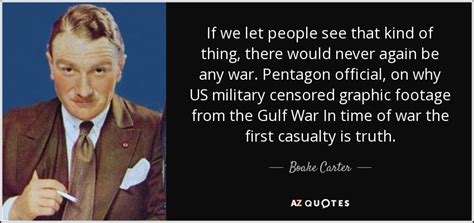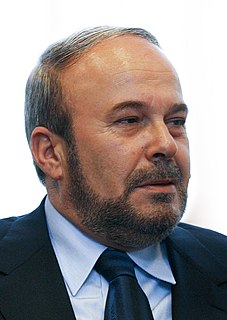A Quote by Paul Virilio
For the US, the Kosovo War was a success because it encouraged the development of the Pentagon's 'Revolution in Military Affairs' (RMA). The war provided a test site for experimentation, and paved the way for emergence of what I call in Strategie de la deception 'the second deterrence'.
Related Quotes
I repeat what I suggest in my book [ Strategie de la deception]. The first deterrence, nuclear deterrence, is presently being superseded by the second deterrence: a type of deterrence based on what I call 'the information bomb' associated with the new weaponry of information and communications technologies.
The frightening aspect is that it's part of a larger effort from the Pentagon to tear down the wall between public affairs and propaganda, and essentially say there is no difference between information operations, public affairs and psychological operations. They have a new name for that too, it's called Information Engagement. What I hope people take away from this is that it's a window into a larger phenomenon. After a decade of Iraq war you have this Pentagon-military apparatus run amok using resources that they shouldn't be to try to manipulate U.S. public opinion.
Because the US has control of the sea. Because the US has built up its wealth. Because the US is the only country in the world really not to have a war fought on its territory since the time of the Civil War ... Therefore we can afford mistakes that would kill other countries. And therefore we can take risks that they can't ... the core answer to why the United States is like this is we didn't fight World War I and World War II and the Cold War here.
... there was the first Balkan war and the second Balkan war and then there was the first world war. It is extraordinary how having done a thing once you have to do it again, there is the pleasure of coincidence and there is the pleasure of repetition, and so there is the second world war, and in between there was the Abyssinian war and the Spanish civil war.



































